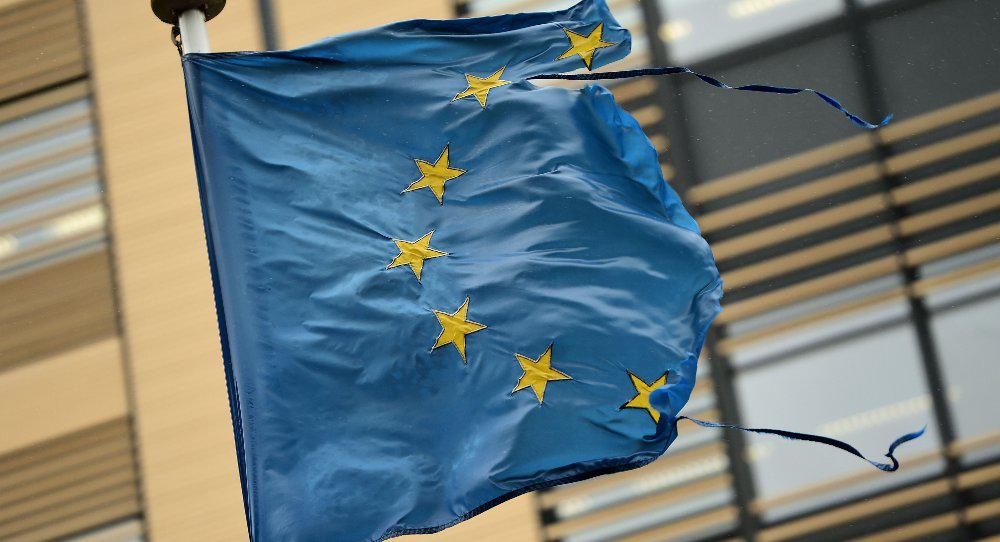The €750 billion ($890 billion) post-coronavirus recovery fund that EU countries agreed to in July 2020 inaugurated a seminormal European summer, despite the pandemic. With the sunshine came optimism that the EU had taken bold steps. It was not a “Hamiltonian moment,” in the words of some observers, because the deal did not herald a new phase of political integration. But the package marked a change from the previous decade, in which the EU had moved from crisis to crisis with conservative, short-term solutions that never addressed the problems of the eurozone, security, migration, or hostile international policies.
In 2020, the EU rejected austerity politics in favor of a redistributive recovery fund, which raised the EU’s seven-year budget to €1.8 trillion ($2.1 trillion). A green and digital transformation of the economy seemed to signal a reinvention of the European model.
The EU could claim to be handling the coronavirus pandemic handsomely in comparison with the United States and the UK. Although health has always been an exclusive responsibility of EU member states, European capitals tasked the European Commission with procuring vaccines and supporting a coordinated effort to distribute them.
This approach reflected an apparent abandonment of the principle of everyone for themselves, which had shamed the EU in the early weeks of the pandemic, in favor of a spirit of stronger together. The new collaboration would discourage competition among countries and support disadvantaged ones through the commission’s adjudication of pharmaceutical contracts.
A few months later, the tables have turned. As the third wave of the coronavirus engulfs Europe, the United States and the UK have administered 37.2 and 44.7 vaccine doses per 100 people, respectively, against a miserable 12.9 doses in the EU. The new U.S. administration has pulled off a remarkable $1.9 trillion stimulus package to be distributed immediately, while the EU is still discussing the details of its recovery fund. Growth forecasts paint a picture of an emerging divide between the United States and the EU.
The challenge is complex, but European leaders have plunged into a state of panic between hoarding vaccine supplies, liberally passing the blame for multiple failures, and threatening unilateral export bans of vaccines. Several minicrises are unfolding across Europe as national governments seek to save themselves from the blame game.
The coronavirus crisis has brought to the fore some of the EU’s contradictions: technocracy versus nationalism, member states versus European integration, and Europe first versus international openness. Potentially, it could drive a wedge into intergenerational solidarity, which has been remarkably resilient throughout the pandemic.
At a time of vaccine skepticism, it is astonishing that mainstream political leaders went against the authority of the European Medicines Agency and the World Health Organization by raising doubts about the safety of the AstraZeneca vaccine out of fear of antivaxxer and populist retaliation. Whatever the contractual issues with AstraZeneca, the smear campaign against the company is putting the entire strategy of herd immunity at risk. Undermining trust in science plays into the populist politics of rejecting coronavirus lockdown measures.
The EU has always had a technocratic tilt, and the balance between expert-led decisionmaking and democratic politics is hard to navigate. Today, political leaders seem to be forgetting the democratic part of this equation and focusing solely on the battle between populism and technocracy. If these are to be the parameters of European politics, the EU is doomed to fail.
Similarly, the balance between national and European interests is always tricky. Solidarity in Europe is too often the most invoked but least endorsed principle. Time will tell how to distribute responsibility, but the combination of poor planning and procurement by the commission and member states’ pursuits of their own lockdown and vaccination policies is far from delivering on promises made. The EU’s legitimacy and credibility are at stake.
Internationally, these panicked and disorderly reactions are undermining global trust in the EU. Threats to block exports of vaccine doses risk derailing supply chains—to little advantage, according to studies. The first spats have been with the UK, with which relations are already rattled because of Brexit. Health officials in Africa are dismayed and warn that a slow health and economic recovery there will have global repercussions. Australia, already hit by an EU export ban, has appealed on humanitarian grounds to keep supplies moving to poorer countries, where the virus is spreading fast. A post-coronavirus EU ought to take into account how it will be seen by the rest of the world.
Alongside these contradictions lies a deeper cleavage: Europe has been badly hit by the coronavirus because of its demographic makeup as an aging society. So far, European policies have prioritized the most vulnerable age groups, not least to protect healthcare systems. But now, if the EU is to have a future, it needs to invest in its youth. Stuck at home, unable to enjoy the social dimension of studying and the freedom to travel by Interrail across the continent, and with limited employment prospects, Europe’s youth risks becoming a lost generation.
To turn the tables in its favor, the EU needs nothing short of a radical vaccination plan to liberate the younger generation from lockdown and put Europe’s economy back on track. This is within the EU’s reach. But the contradictions and paradoxes in the behavior of Europe’s political leaders and in the policy delivery of European institutions will linger for longer, obfuscating the general principles that guide European integration and the EU’s global role.




.jpg)

.jpg)